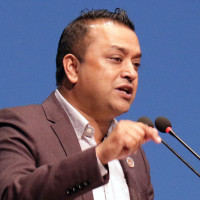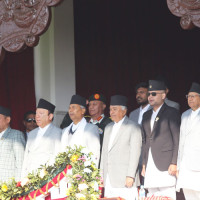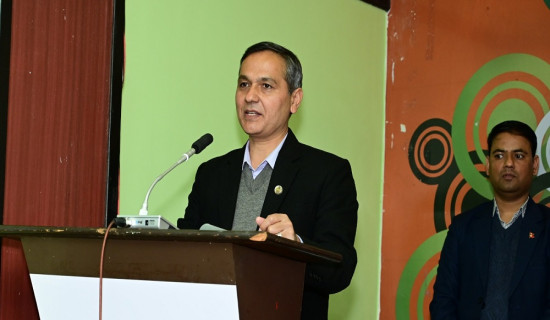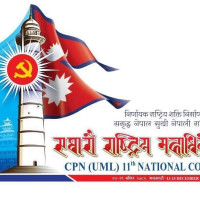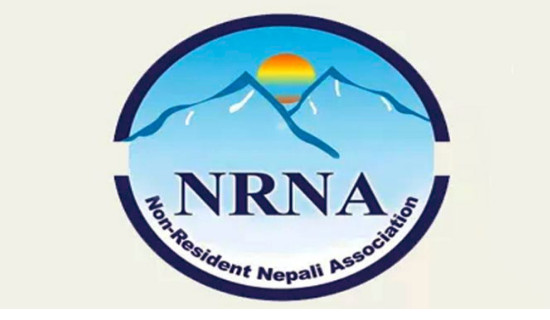- Monday, 15 December 2025
VOA Targeted As Irrelevant
In principle, just as democratic governments vary in institutional structure and functioning all over the world, government-owned news media, too, fall under a similar pattern. Ridiculing some “state media”, “official media” and “government mouthpieces” might generate a measure of cerebral illusion to the indulgent, particularly from economically advanced nations of the Western mould. No government can convince the public with its denial of “State-owned” news outlets if it appoints executive committees and chief officials, whether in South Asia, Europe, the United States, or anywhere else.
In his furious drive at cost-cutting thrust, US President Donald Trump’s advisor Elon Musk, in March obtained an executive order to lay off most of the state-funded media staff members. The world’s richest billionaire, working for the government at a monthly wage of $1, is in a hurry to slash costs, plug administrative loopholes and tone up a bloated bureaucracy. VOA is not easily accessible in the US because it is seen as government propaganda, fully funded by taxpayers’ money. BBC World Service, too, is fully funded by the British government’s foreign ministry, unlike the domestic BBC channels financed through mandatory tariffs on all TV set holders in the United Kingdom.
“State media” has developed a negative connotation because of the loaded description made by Western media whenever referring to a new outlet of an authoritarian regime not in friendly terms with Washington. Under the circumstances, it was strange — rather, amusing—that the Paris-based Reporters Without Borders and the British news agency Reuters came up in arms against the move to trim the Voice of America and its other sister agencies in staff size and financial support.
Aversion on display
Trump has an aversion to American mainstream media. For six years, most of them have been slighting and ridiculing him and his activities without any let-up. The New York Times is reported to have received hundreds of millions of dollars from USAID programmes over the years. More than 1,300 Voice of America employees were put on administrative leave while funding for two news services catering to audiences under “authoritarian” regimes. Ostensibly, VOA focused on the fight for freedom and democracy in foreign lands. Government-funded American broadcasters claim to cater to nearly 50 languages.
The Trump administration’s defunding scrapped support to Radio Free Europe/Radio Liberty, directed at Eastern European countries, mainly Russia and Ukraine, and also Radio Free Asia, primarily targeted at China and North Korea. A Reuters story analysed Trump’s directives as “set to devastate an organisation that serves as a rare source of reliable news in authoritarian countries”. Originally set up ostensibly to deal with Hitler’s propaganda machinery, VOA’s weekly reach is now claimed to be 360 million, with an annual budget of nearly $ 1 billion. The Trump administration dismisses VOA and its ilk as a “burden” to taxpayers.
In the cross-fire, the Russian government has declared Radio Free Europe/Radio Liberty an “undesirable organisation”. People in Russia and Russia-occupied Ukraine are liable to be fined or imprisoned for sharing its content. The news media and intellectuals in major Western powers disparage state-funded information channels, especially in nations with which the West does not have a good rapport, as “state-owned” or “government mouthpiece”. The idea is to downgrade news channels whose angling and contents differ from their Western counterparts. On the other hand, the very fact that looks down upon state-run media in developing countries as less than professional differentiates government media operating in the West as echoing the voice of the people. The lack of any emphatic principle betrays an expedient inconsistency.
In any case, public distrust of mainstream media in the West is barely 40 per cent of the population, as shown by public opinion polls that their own independent groups have been conducting. Mike Balsamo, president of the National Press Club in Washington, issued a statement lamenting the budget cuts against VOA, which “undermined” America’s commitment to a free and independent press. Not to be left behind, the Paris-headquartered INGO, Reporters Without Borders, is dismayed over VOA’s budget cuts. It describes the broadcaster's history as “supporting a free flow of information”.
In short, quite a few large media groups empathise with the downsized state-owned news media and the disbanded employees in the US. Others speak a different language. American citizens, particularly Republicans, want the state-funded media scrapped without ceremony. China’s Global Times recently commented on VOA: “Since its primary focus and goal were ideological warfare, it did not prioritise the truthfulness of news”. As a propaganda tool, VOA was launched in 1942 during World War II to address foreign listeners. It continued in the post-World War II years as an anti-communist broadcaster that was supplemented by other American state-funded agencies.
False impression
It is time to shake off the illusion created by big, legacy media in the so-called advanced democracies that employ one language for their own kind, and sharply different for others. Contrary to the general impression that BBC's domestic channel, funded by state-supervised mandatory fees from all households owning a TV set each, is the target of regular criticisms for alleged “left-wing” tilt. Despite the claim of being a model “public service broadcasting”, the BBC, in recent years, has been facing mounting pressure from the government to scrap the “public service” broadcasting tax. Another worldwide misimpression is that BBC World Service follows the footsteps of its domestic service broadcasting. The global broadcaster is fully financed by the foreign affairs ministry, whose influence on it is no secret.
There should not be resistance to government-run media where at least a fair electoral democracy prevails, with a liberal policy on private sector news channels. Ironically, thousands of news outlets across the globe, including many Western democracies, receive financial support from INGOs or governments. USAID, for instance, had been funding the private sector media for decades. Yet the beneficiaries belittle government media, while they, too, are “foreign” government media for accepting money from “donors” disguised as INGOs or foreign government aid agencies. Just as “private” media do not automatically register as fair and professional media, government-owned media cannot be termed unprofessional in functioning, whether in Western democracies or under elected governments elsewhere.
(Professor Kharel specialises in political communication.)




